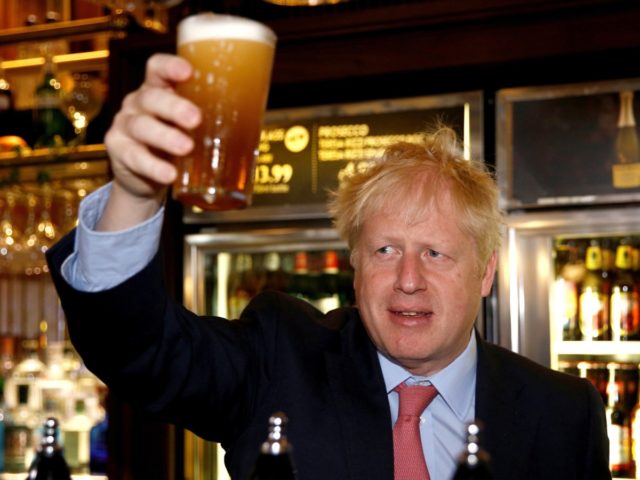Prime Minister Boris Johnson has said that pubs, restaurants, and a selection of other British businesses will be permitted to open as of the 4th of July.
Speaking before the House of Commons, Mr Johnson said that “thanks to our progress [on stemming the spread of the Chinese coronavirus] we can now go further and safely ease the lockdown in England”. However, he went on to note that all steps in reopening the British economy will be “conditional and reversible”.
“Today we can say that our long national hibernation is beginning to come to an end… the bustle is starting to come back,” Johnson proclaimed.
In announcing the reopening of pubs and restaurants, the prime minister said that they will be limited to table service, and guidance will encourage minimal staff and customer contact. The government will also be asking businesses to collect contact details from customers to track any localised outbreaks of the Chinese coronavirus.
Boris Johnson said that “as we have seen in other countries, there will be flare-ups” and therefore his government “will not hesitate” to reintroduce local and even national lockdowns.
Other businesses that will be allowed to reopen on July 4th will include cinemas, hotels, bed and breakfasts, campsites and caravan parks, playgrounds, museums, galleries, theme parks, outdoor gyms and arcades, libraries, social clubs, and community centres.
Hairdressers will also be allowed to reopen; however, they will be required to implement safety measures such as the use of visors as has been seen across Europe.
Businesses including nightclubs, gyms, swimming pools, bowling alleys, water parks, and spas will remain prohibited from opening by the government.
The move by Boris Johson to reopen large sectors of the British economy will be a welcome change to many. However, others have pointed out that it may be too late to avoid the impending economic crisis caused by the national lockdown.
Breitbart News’s columnist James Delingpole said that the decision by Boris Johnson’s government to impose a national lockdown may “have seemed a sensible precaution” at the outset of the outbreak, but went on to conclude that “it’s looking more and more like the biggest error of judgement in political history“.
Delingpole went on to note:
There is little if any plausible evidence that the lockdown saved lives (whatever the discredited and increasingly ridiculous modeller Neil Ferguson may have told parliament); there is lots of evidence, however, of the economic and social damage that the lockdown has caused: children denied their education; thousands of businesses that may never recover; looming mass unemployment.
Indeed, this month Britain’s public debt has surpassed the size of the country’s entire economic output for the first time since 1963.
The government borrowed a record £55 billion in May to pay for job furlough schemes, raising the total debt of the country to £1.95 trillion (100.9 per cent of GDP), a £173 billion increase over last year.
In May, internal Treasury Department documents revealed that the government is intending to raise taxes to cope with the skyrocketing debt and deficits. The move would likely prolong the recession and would fly in the face of the Conservative Party’s pledge made in the last general election to raise taxes on the British people.
Follow Kurt on Twitter at @KurtZindulka

COMMENTS
Please let us know if you're having issues with commenting.